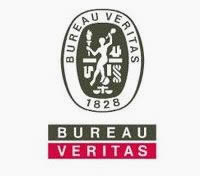Disadvantages of using tracking code for website visitor analysis
10/04/2009
Are there any disadvantages in using website tracking code?
Yes.
And they are not often considered.
What are the disadvantages of using website tracking code?
There are three main disadvantages in adding tracking code snippets to your website. These are:
1. Page load time can be increased with tracking code
2. Natural search rankings can be harmed when tracking code is added
3. Tracking code can interfere with other code on the website causing parts of the functionality not to work
Taking each of these in turn:
Page load time can be increased with tracking code
Most tracking code (eg Urchin, Google Analytics, Statcounter, VisitorVille) is provided by a third party and includes a link back to their server. If the third party server is down or slow or to reach (A network issue) or old and slow, then this will increase time to load on your website. Including third party tracking code makes your website more susceptible to issue on third party servers or third party DNS providers, and this will increase the time your web pages are perceived to be unavailable.
This will have an adverse affect on real people visiting your website and search engine robots which may impact natural search engine rankings (see below). This impact can be reduced in the manner in which the tracking code is implemented; a good SEO analyst who is also a web programmer will not always implement the tracking code as suggested by the tracking company, but adapt the tracking code to be implemented in a better way.
Natural search rankings can be harmed when tracking code is added
This is often overlooked even by many SEO agencies!
Cornish WebServices believe that all website tracking code has an impact on natural search rankings, and this includes the commonly used Google Analytics code. We believe that on balance most third party tracking code has a negative impact on natural search results, but some may have had a positive impact on search engine ranking if implemented carefully. By contrast most tracking system implemented entirely on the website server have no impact on search engine ranking if implemented correctly.
Tracking code can interfere with other code on the website causing parts of the functionality not to work
Most tracking code uses JavaScript. If other JavaScript functions on the webpage are similar or use the same names then conflicts can occur. This use to happen often when both urchin and Google Analytics code were used (As the early Google Analytics code was in fact the Urchin system). But it can impact functions which might include contact forms scripts.
A good webpage developer will never simply ‘insert’ a tracking script without assessing its impact on the website functionality.
Conclusion
When you decide to include tracking code on your website (or are asked to do so by your SEO agency) you should be aware of potential disadvantages and check it is implemented to minimise these.
The valuable information provided by visitor tracking systems will usually outweigh the disadvantages of implementing tracking scripts onto your website.

























